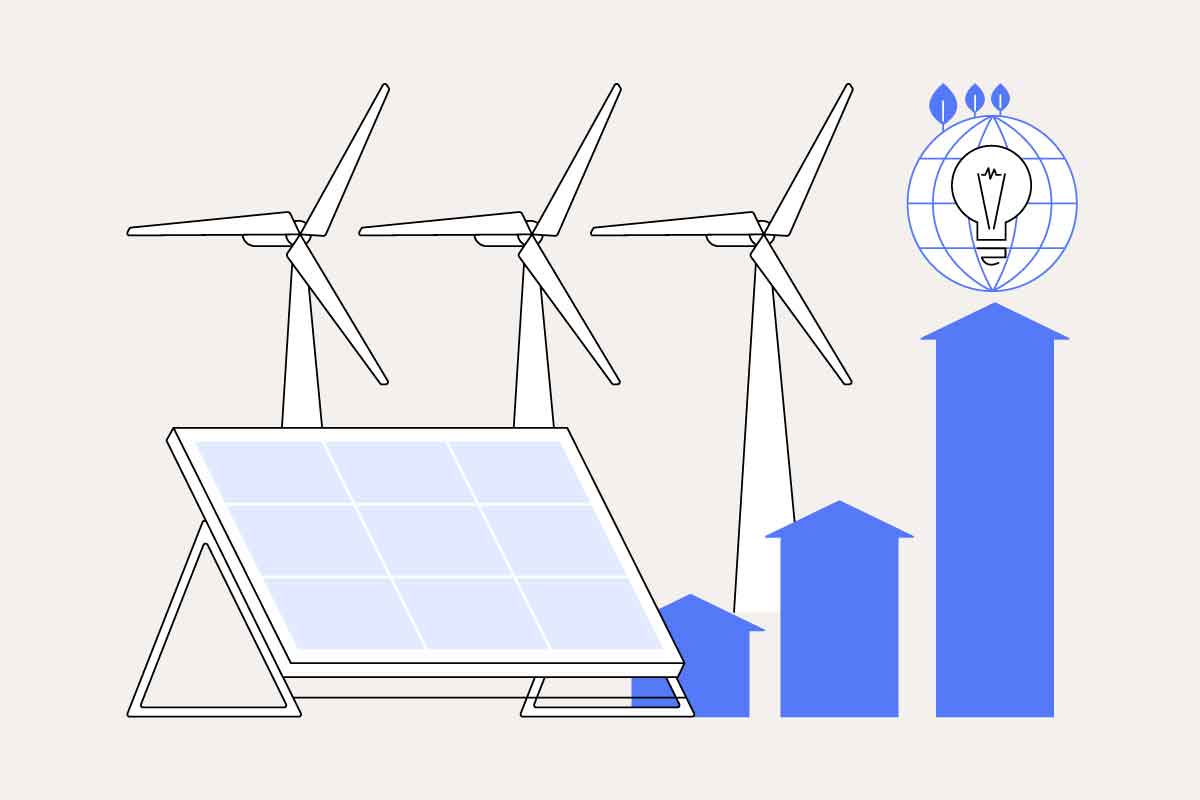EDF Energy, one of the UK’s largest energy suppliers, offers a range of products and pricing plans tailored to meet the diverse needs of businesses, from small enterprises to large corporations. This guide provides a comprehensive review of EDF’s business energy products, current pricing strategies, and considerations for selecting the best option for your business.
EDF business energy pricing list – Gas and electricity
To provide a clear understanding of EDF current business energy pricing, the following table outlines the typical prices for various contract options. Please note that these prices are indicative and may vary based on market conditions, business size, and energy usage patterns.
| Contract Type | Electricity Price (pence per kWh) | Gas Price (pence per kWh) | Standing Charge (pence per day) | Contract Length |
|---|---|---|---|---|
| Fixed-term (1 year) | 30.5 | 9.2 | 25 | 1 year |
| Fixed-term (3 years) | 28.0 | 8.8 | 24 | 3 years |
| Flexible contract | Varies (based on market rates) | Varies (based on market rates) | 22 | 1-3 years (flexible) |
| Green energy plan | 32.0 | 10.5 | 26 | 1-3 years |
| Large business contract | Negotiable | Negotiable | Negotiable | Customisable |
Key considerations for pricing:
- Electricity Price (pence per kWh): This is the cost for each kilowatt-hour of electricity used. Fixed-term contracts offer set prices, whereas flexible contracts vary with market conditions.
- Gas Price (pence per kWh): Similar to electricity, this indicates the cost per kilowatt-hour of gas consumed. Prices can vary based on the type of contract and market dynamics.
- Standing Charge (pence per day): A daily fee that covers the cost of maintaining the supply infrastructure and administrative expenses. This charge is typically fixed and varies slightly depending on the contract type.
- Contract Length: Refers to the duration of the energy contract. Longer contracts can provide more stability in pricing but may lack the flexibility to capitalise on market rate reductions.
Notes:
- Prices are indicative: The prices listed above are for illustrative purposes and can fluctuate based on a range of factors, including location, business size, energy consumption, and market conditions. Businesses should contact EDF directly to receive a tailored quote that reflects their specific needs.
- Customisable options: Large businesses may negotiate bespoke pricing and contract terms with EDF, reflecting their significant energy needs and the potential for tailored service agreements.
- Renewable energy premium: Green energy plans typically have higher prices compared to standard fixed-term contracts due to the costs associated with sourcing renewable energy. This premium supports sustainability initiatives and aligns with environmental goals.
Understanding EDF business energy offerings
EDF Energy provides a variety of business energy products designed to cater to different business sizes and energy usage patterns. These products are typically categorised into three main segments:
- Fixed-term contracts: These contracts allow businesses to lock in a unit rate for electricity or gas over a specific period, usually between one to three years. Fixed-term contracts offer predictability and protection against market fluctuations, making them an attractive option for businesses looking to maintain budget stability.
- Flexible contracts: Aimed primarily at larger businesses, flexible contracts provide the ability to purchase energy in blocks at different times, depending on market conditions. This approach allows businesses to benefit from potential price drops while also managing risk exposure to price increases. EDF’s flexible contracts come with various options, such as purchasing energy daily or quarterly, depending on the business’s risk appetite and consumption patterns.
- Green energy plans: With a growing emphasis on sustainability, EDF offers green energy options that supply electricity generated from renewable sources, such as wind and solar. These plans are designed for businesses committed to reducing their carbon footprint and aligning their energy consumption with environmental goals.
Pricing strategies and current trends
EDF pricing for business energy products is influenced by several factors, including market conditions, regulatory changes, and the overall energy landscape. As of 2025, several key trends are shaping the pricing strategies for EDF business energy offerings:
- Market volatility: Global events, including geopolitical tensions and fluctuations in energy supply and demand, have contributed to increased volatility in energy prices. EDF, like other suppliers, adjusts its pricing to reflect these market conditions, impacting both fixed and flexible contract rates.
- Regulatory impact: The UK government’s commitment to net-zero emissions by 2050 and subsequent policies have influenced the energy market. EDF incorporates these regulatory considerations into their pricing, especially for green energy products, which may carry a premium due to the costs associated with sourcing renewable energy.
- Technology and innovation: Advances in energy storage, smart meters, and demand response technologies are influencing how energy is consumed and priced. EDF is investing in these technologies to provide more accurate and real-time pricing options, allowing businesses to optimise their energy usage and costs.
Selecting the right product for your business
Choosing the best energy product from EDF requires a thorough understanding of your business’s energy needs, budget constraints, and sustainability goals. Here are some key considerations to help guide your decision:
- Energy consumption patterns: Analyse your business’s energy usage to determine whether a fixed-term contract or a flexible plan is more suitable. Businesses with predictable energy usage might benefit from the stability of fixed-term contracts, while those with variable usage may find flexible contracts more cost-effective.
- Risk tolerance: Consider your business’s ability to manage price risks. Fixed-term contracts offer price certainty, which can be advantageous for budgeting, while flexible contracts provide potential cost savings but come with higher risk.
- Sustainability goals: If reducing carbon emissions is a priority, opting for EDF’s green energy plans can support your environmental objectives. Although green energy plans may be more expensive, they contribute to a sustainable business strategy and can enhance your brand’s reputation.
- Contract duration and flexibility: Evaluate the length of the contract and any flexibility it offers. Long-term contracts can provide price stability but may limit your ability to take advantage of falling prices. On the other hand, shorter contracts offer more flexibility to switch suppliers or renegotiate terms.
For more, see our business energy comparison, and our price lists for business gas and business electricity.
FAQ – EDF business pricing
EDF business electricity prices vary depending on the contract type. For a 1-year fixed-term contract, the price is typically around 30.5 pence per kWh, while a 3-year fixed-term contract offers a rate of 28.0 pence per kWh. Flexible contracts have prices that vary with market conditions.
EDF charges for business gas also depend on the contract type. The typical price for a 1-year fixed-term gas contract is 9.2 pence per kWh, while a 3-year fixed-term contract has a slightly lower rate at 8.8 pence per kWh. As with electricity, flexible contracts have gas prices that vary based on market fluctuations.
The standing charge for EDF business energy contracts varies by the type of contract. For most fixed-term contracts, the standing charge is 25 pence per day. Green energy plans generally have a standing charge of 26 pence per day. Flexible contracts typically feature a standing charge of around 22 pence per day.
Yes, EDF offers green energy plans that have specific pricing. The electricity price for EDF’s green energy plans is generally around 32.0 pence per kWh, and the gas price is about 10.5 pence per kWh. These plans also come with a standing charge of 26 pence per day.
Yes, EDF offers customised pricing options for large businesses. These businesses can negotiate electricity and gas prices that are not set but are instead tailored to their specific needs. Standing charges and contract lengths are also negotiable for large business contracts, allowing for bespoke agreements.
The length of the contract has a significant impact on EDF’s business pricing. A 1-year fixed-term electricity contract typically costs 30.5 pence per kWh, whereas a 3-year fixed-term contract is slightly cheaper at 28.0 pence per kWh. Longer contracts usually offer lower per-unit costs but may reduce flexibility.
Costs for EDF’s flexible business contracts are variable, depending on market rates at the time of purchasing energy blocks. While there are no fixed prices for electricity or gas under flexible contracts, the standing charge is typically around 22 pence per day.
Yes, small businesses can benefit from EDF’s business energy pricing. They can opt for 1-year fixed-term contracts with electricity prices around 30.5 pence per kWh and gas prices at 9.2 pence per kWh, which offer budget predictability and competitive rates.

